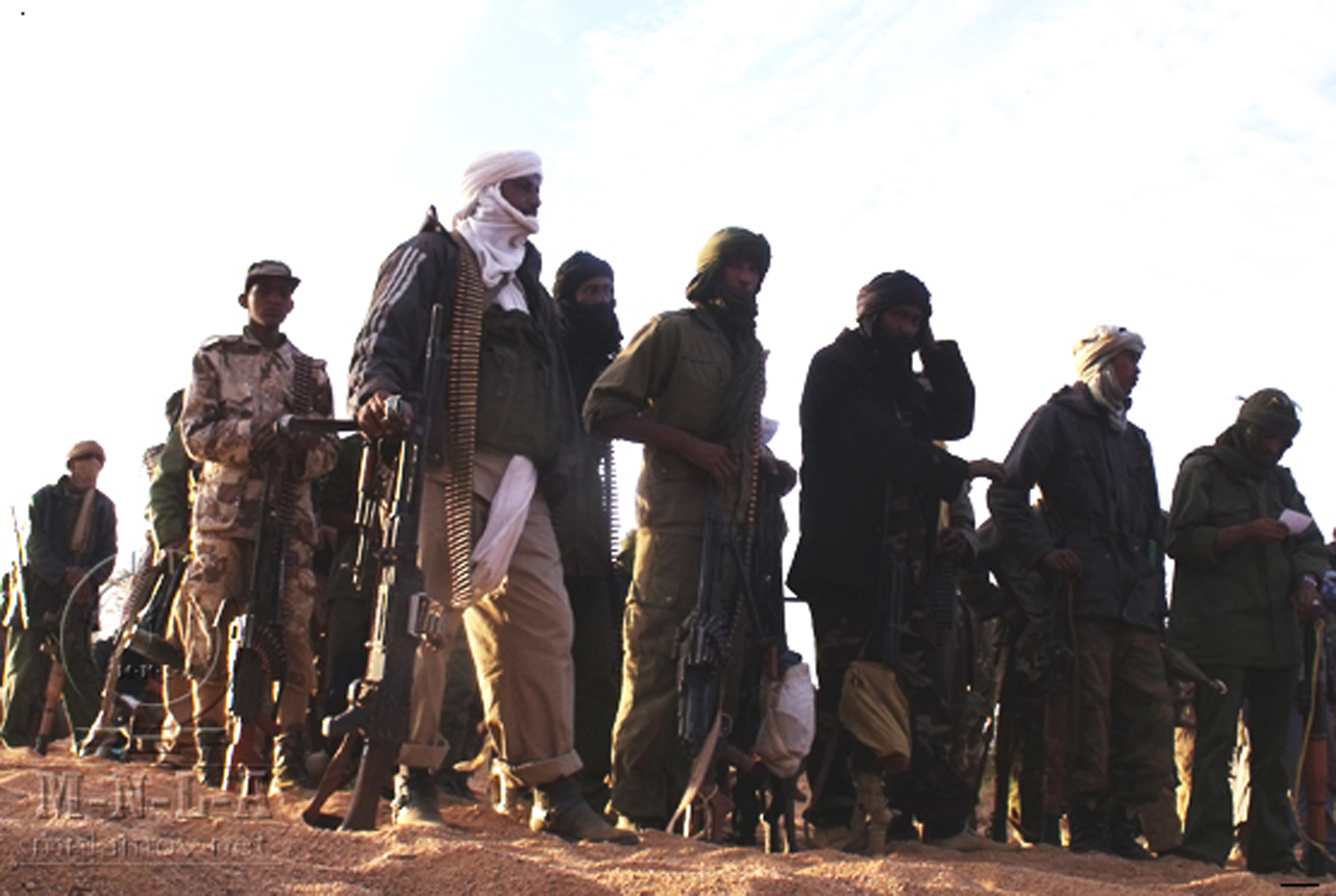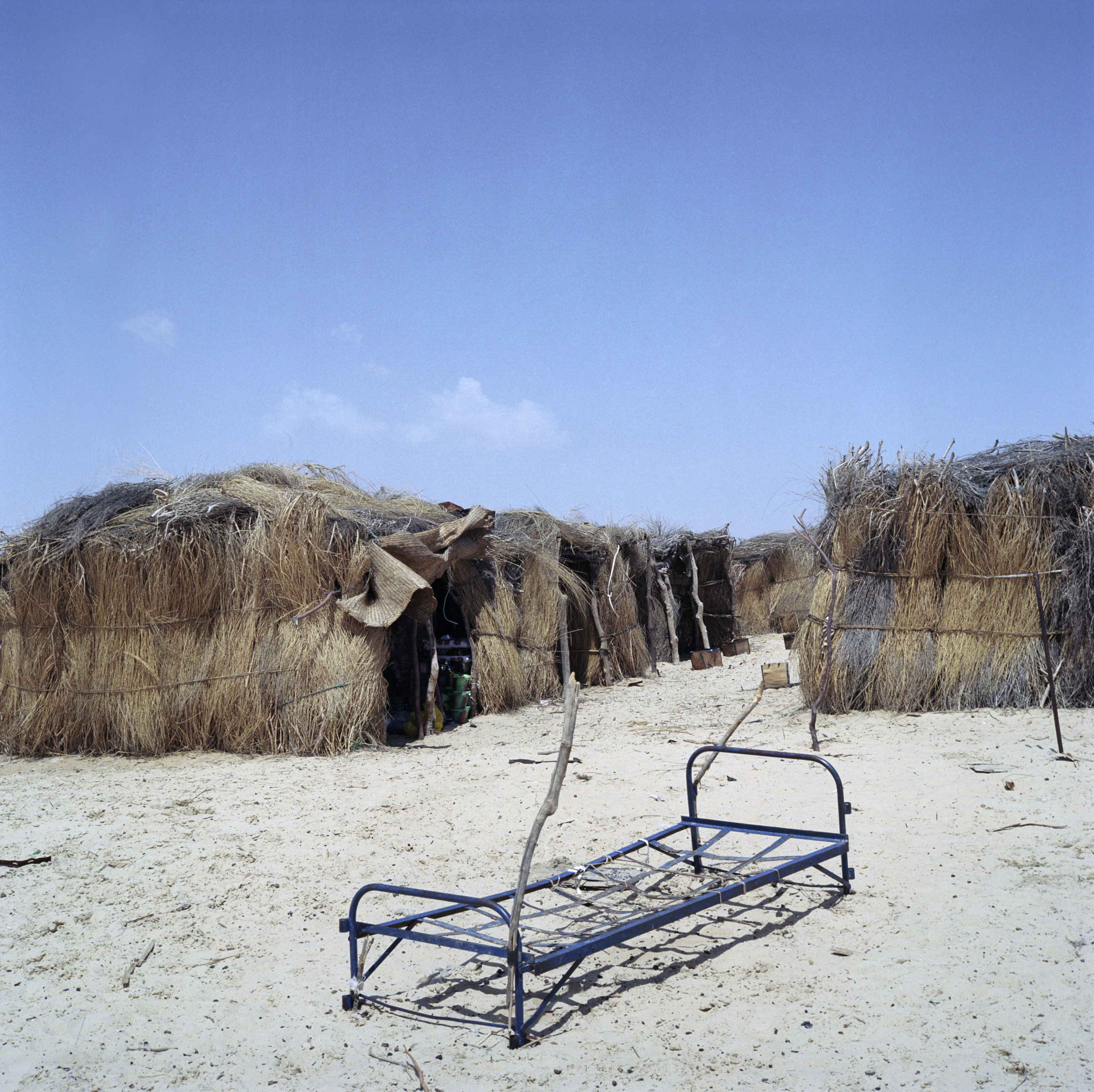
Swiss tread carefully in Mali mediation efforts

Switzerland is trying to leverage its 35-year history in Mali, a priority country for Swiss development aid, to mediate between the government in Bamako and the Tuareg of the Azawad National Liberation Movement (MNLA).
But French military intervention, a tense bilateral history and the MNLA’s former alliance with radical Islamist groups ensure the task ahead of the Swiss will not be easy.
Pierre Gontard, former deputy director of the Graduate Institute of International and Development Studies in Geneva and an expert on the region, says that Switzerland is well-positioned to maintain contacts with the different groups in northern Mali because it does not have direct interests in the region.
“When the moment comes, that could facilitate the discussions and negotiations. Because the crisis in Mali dates back to 1960 and the country’s independence and that was never resolved in a sustainable manner,” Gontard tells swissinfo.ch.
Gilles Yabi has a more nuanced view. “Switzerland has been present in the region for a number of years and knows all the players,” says the director for West Africa at the International Crisis Group. “This will be an asset when the hour comes to define a new political model for northern Mali. But still, Swiss mediation failed to prevent the current conflict.”
The alliance between the Tuareg of the MNLA and radical Islamist groups played a major role in altering the power struggle against the government in Bamako when the northern half of Mali seceded from the south last year.
“But very quickly, the MNLA realised it had been duped by the Islamists of al-Qaeda in the Islamic Maghreb (Aqim), by the Movement for Oneness and Jihad in West Africa (Mojwa) and Ansar Dine (“defenders of the faith”), two other fundamentalist groups,” says Pierre Haski, co-founder of the French news website Rue89.
“The MNLA found itself marginalised and deprived of the victory to which it had made a decisive contribution and, above all, from embedding itself locally.”

More
Mali’s desert riders
Central element
A former diplomat who declined to be named agrees that it is important to maintain contact with the Tuareg movements “which have been treated like victims of the plague since their alliance with the Islamists”. Such contacts could rapidly yield some interesting results once the military intervention is over, the diplomat suggests.
Despite its alliance with, and subsequent defeat by the radical Islamist groups, the Tuareg and the MNLA remain “a central element of the Malian puzzle, and more broadly, of the Sahel-Saharan puzzle”, says Mohammad Mohamedou, visiting professor at the Graduate Institute of International and Development Studies.
According to the foreign ministry, “Switzerland maintains contact with members of the MNLA who have renounced independence and who have distanced themselves from terrorism with the objective of preparing a future reconciliation between the Malian communities in the north and south of the county in the context of a reunified Malian state. We have no contact with members of terrorist jihadist groups, with whom there is nothing to negotiate.”
In recent years, Mali has not only mobilised Swiss diplomacy in the context of its policy of good offices. Three Swiss have been victims of a wave of ruthless kidnappings which have swept across northern Mail in recent years.
In January 2009, while returning from a festival of nomadic culture in the north of the country, a Briton, a German and a Swiss couple were kidnapped by the organisation al-Qaeda in Islamic Maghreb (Aqim). One Swiss was released 90 days after her capture, while her husband was held captive for 172 days.
Bern has always refused to pay any ransom demands. In April 2012, a missionary from Basel was also kidnapped in Timbuktu in an operation for which the Ansar Eddine movement claimed responsibility. She was released after 10 days.
Victims of power games
But the political context surrounding such contacts by the Swiss has been made all the more complex by a negative campaign mounted in the Malian media last summer, which accused the Swiss of financing terrorism.
A source with knowledge of the controversy tells swissinfo.ch that Switzerland was a “collateral victim” of popular opinion which had been influenced at the time by the Tuareg of the MNLA following their alliance with the radical Islamists. Moreover, certain people close to power in Mali had no interest in resuming negotiations, the source says.
The impetus for the backlash was an article published in Swiss daily newspaper Le Temps, which revealed the foreign ministry financed a meeting of the MNLA in Ouagadougou, Burkina Faso.
“Switzerland cannot finance development programs and terrorism at the same time, in the same country,” raged vice president of the national parliament Assarid Ag Imbarcawane in the Malian newspaper Le Prétoire last August.
Assassination
Claude Wild, head of the human security division at the foreign ministry, maintains that Switzerland has never supported a division of Mali.
“Mali must remain a unified country, but the problems of the minorities in the north must be better heard by the political elite in the south of the country,” he told the newspaper NZZ am Sonntag recently.
Switzerland is treading even more carefully given that it has also been a victim in the past of the ruthless power games and conflicts of interest which have consumed the Malian state.
The October 1994 assassination of the head of Swiss development cooperation, Jean-Claude Berberat, accused by the local press of colluding with the Tuaregs, has long cast a shadow over the bilateral relationship between the two countries.
It was only in August 2001 that Switzerland received a long-awaited apology from the Malian government, which had done everything possible to avoid a serious investigation of the army following the assassination. It was another five years before the Swiss Agency for Development and Cooperation (SDC) agreed to return to northern Mali.
Priority country
Today, however, the tone is resolutely one of appeasement – coupled with a development budget of SFr23 million in 2012.
“In terms of development cooperation, the relations which link Switzerland and Mali are very good, tight, and go back to 35 years of working together,” the foreign ministry said in a statement to coincide with the visit to Mali by Ambassador Muriel Berset-Kohen in September last year.
Switzerland continues to support efforts aimed at resolving the crisis in Mali, despite the current French military intervention. In a written statement provided to swissinfo.ch, the foreign ministry said: “Although currently the military intervention has taken precedence over political dialogue, dialogue remains essential and must be pursued between the Malian authorities and the armed groups which have clearly distanced themselves from terrorism and renounced any vague desire for independence.”
To this effect, Switzerland is pursuing its regular meetings with the principal political actors both in the region and internationally, the foreign ministry said.
“The commitment applied to the mediation talks in Burkina Faso on the mandate of Ecowas (Economic Community of West African States) and at the request of Mali, which recently reiterated its gratitude with relation to the role of the Swiss, continues, all the while taking into account the evolution of the political and security situation.”
The Azawad National Liberation Movement (MNLA) is a political and military movement based in the Azawad region of northern Mali. It is made up of Tuareg, many of whom are thought to have fought on both sides of the 2011 Libyan civil war. The movement was founded in October 2011 and says it includes other Saharan peoples. It has been accused by the Malian government of having links to al-Qaeda in the Islamic Maghreb, which it denies. By April 2012, it controlled most of northern Mali jointly with the Asnar Dine group. However, factional disputes later caused it to lose control to both Asnar Dine and the Movement for Oneness and Jihad in West Africa.
(Adapted from French by Sophie Douez)

In compliance with the JTI standards
More: SWI swissinfo.ch certified by the Journalism Trust Initiative


























You can find an overview of ongoing debates with our journalists here . Please join us!
If you want to start a conversation about a topic raised in this article or want to report factual errors, email us at english@swissinfo.ch.